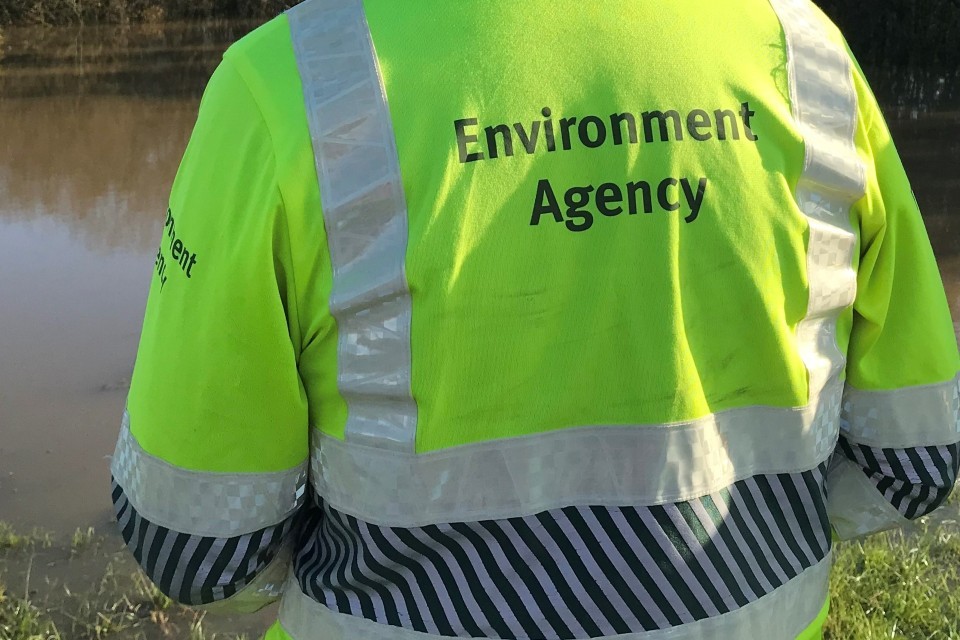- England faces 5 billion litre a day shortfall for public water supplies by 2055 – and a further 1 billion litre a day deficit for wider economy.
- Pressures caused by climate change, growing population, emerging technologies and need to protect environment.
- £8 billion water company investment already committed over next five years.
England’s public water supply could be short by 5 billion litres a day by 2055 without urgent action to futureproof resources, the Environment Agency has warned today. (June 17th 2025).
Climate change, population growth, and environmental pressures are impacting supplies with the predicted shortfall equivalent to a third of our current daily use – or the volume of 4.5 Wembley Stadiums.
A further one billion litres a day will also be needed to generate energy, grow our food, and power emerging technologies.
The analysis is outlined by the Environment Agency’s National Framework for Water Resources. The report, published every five years, sets out the actions required by water companies, regulators, businesses, and the public to best manage water usage into the future.
The EA expects 60% of this deficit to be addressed by water companies managing demand and dramatically reducing leaks. The remaining 40% would come from boosting supply, including the building of new reservoirs and water transfer schemes.
The government has secured £104 billion in private sector spending in water company infrastructure over the next five years, including £8 billion committed to boost water supply and manage demand.
Further recommendations and actions include
-
Leakage The EA will continue to work with financial regulator Ofwat on water company pledges to cut leakage by 17% in the next five years and by 50% by 2050.
-
Smart meters Water companies have committed to the vital rollout of ten million more smart meters to help customers understand how much they use – and reveal where wastage may be in their homes and businesses. The average person on a meter uses 122 litres per day, compared to 171 litres without.
-
Efficiency labelling Household appliances, such as dishwashers, toilets, and showers, can be more efficient and the EA will continue to work with Government on a mandatory efficiency labelling scheme.
-
Infrastructure Water company plans includes nine new desalination schemes, 10 new reservoirs and seven new water recycling schemes by 2050.
Environment Agency Chair, Alan Lovell, said
The nation’s water resources are under huge and steadily increasing pressure.
This deficit threatens not only the water from your tap but also economic growth and food production. Taking water unsustainably from the environment will have a disastrous impact on our rivers and wildlife.
We need to tackle these challenges head-on and strengthen work on co-ordinated action to preserve this precious resource and our current way of life.
Each region has specific needs related to industry and geography. Since the Environment Agency’s last framework was released in 2020, five regional water resources groups have either been established or bolstered to develop plans that identify each area’s individual needs.
RAPID (Regulators’ Alliance for Progressing Infrastructure Development) has also been formed by regulators EA, Ofwat and the DWI (Drinking Water Inspectorate) to accelerate the development of large infrastructure projects.
Ofwat Chief Executive, David Black, said
We recognise the unprecedented pressures on our water resources and the ambition to further cut abstraction to improve river health, which we strongly support. This is why we announced £8bn of funding at Price Review 2024 to deliver the required action across the sector to secure our future water supplies.
Boosting supply through building critical water infrastructure is essential to safeguard supplies of drinking water. The way is now clear for the water industry to build on the success of the recently opened £5 billion Thames Tideway project by stepping forward to deliver an expanded pipeline of 30 major projects which we need in England and Wales.
Emerging industries, such as data centres and hydrogen production, require vast amounts of water to cool their systems and the EA wants businesses to explore more options for using non-potable water – perfectly usable but not for human consumption.
Additional changes are also needed for some abstraction practices – the taking of water from rivers, lakes, and groundwater for public and business use. The EA wants more sustainable solutions, in some cases, easing the strain on environmentally sensitive sites, such as chalk streams.
The regulator wants homes to become more efficient to support development and the environment. Schemes in Sussex, Cambridgeshire and Norfolk have previously been delayed because of limited water supply.
Water shortages can lead to lower crop yields and higher food prices, and the EA is helping groups of farmers to identify how they can improve their supply resilience, for example by sharing water rights and building jointly owned reservoirs
There are also small steps the general public can take. These include
- Shortening showers
- Turning off taps when brushing teeth
- Using full loads for washing machines and dishwashers
- Collecting rainwater for garden use
- Deleting old emails to reduce pressure on data centre servers
Note to editors
The summary report is available online.








